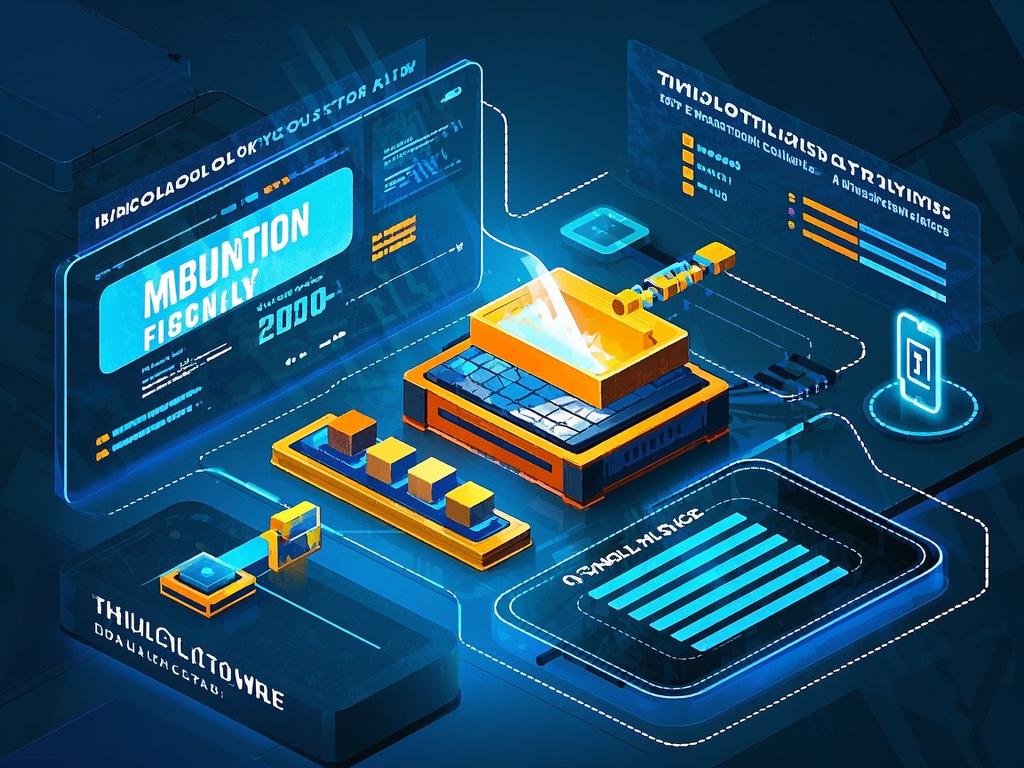
# The Impact of Technological Disruptions on Financial Services for the Manufacturing Industry
In the ever-evolving landscape of global finance and manufacturing, technological disruptions have emerged as a double-edged sword, reshaping the very fabric of financial services for the manufacturing sector. Let's dive deep into this fascinating realm and explore the far-reaching implications.
## The Technological Tsunami Hitting Manufacturing Finance
The pace of technological change in recent years has been nothing short of mind-blowing. We're talking about artificial intelligence, blockchain, the Internet of Things (IoT), and big data analytics. These technologies are not just buzzwords; they're game-changers.
Take IoT for example. With millions of devices now connected in manufacturing plants worldwide, the amount of data generated is astronomical. This data can be used to optimize production processes, predict equipment failures, and improve supply chain efficiency. But here's the catch - managing this flood of data requires sophisticated financial models. Banks and financial institutions that can't keep up with the data analytics demands of IoT-enabled manufacturing are at risk of being left in the dust.
Blockchain, on the other hand, has the potential to revolutionize supply chain finance. By providing an immutable ledger of transactions, it can reduce fraud, streamline payment processes, and enhance transparency. For manufacturers dealing with complex global supply chains, this is a godsend. However, implementing blockchain in financial services for manufacturing is no walk in the park. There are regulatory hurdles, integration challenges, and the need for widespread adoption across the industry.
## Historical Perspective: A Journey Through Technological Disruptions in Manufacturing Finance
Looking back at history, we can see that technological disruptions in manufacturing finance are not new. The Industrial Revolution was a prime example. The introduction of machinery in factories led to a massive shift in production methods. This, in turn, required new financial arrangements to fund the expansion of factories, purchase equipment, and manage the workforce.
Fast forward to the digital age, and we're facing similar challenges. Just like the Industrial Revolution, today's technological disruptions are forcing financial institutions to adapt or perish. The difference is the speed at which change is occurring. In the past, it took decades for new technologies to have a significant impact on finance. Now, it's happening in a matter of years, if not months.
## The Poetic Dilemma: Navigating Uncharted Waters
As we sail through these uncharted waters of technological disruptions in manufacturing finance, we're reminded of the words of T.S. Eliot: "We shall not cease from exploration, and the end of all our exploring will be to arrive where we started and know the place for the first time."
Manufacturers and financial institutions alike are on a quest for that new understanding. They're exploring how to use technology to create more efficient financial services, reduce costs, and gain a competitive edge. But it's not all smooth sailing. There are risks, uncertainties, and ethical considerations.
For instance, the use of AI in credit scoring for manufacturers could lead to discrimination if not properly regulated. What if the algorithms are biased against certain industries or regions? This is a question that demands our attention. We need to ensure that technological disruptions in financial services for manufacturing are harnessed for the greater good, not just for profit.
## Political and Economic Ramifications
Politically, the rise of technological disruptions in manufacturing finance has implications for government policies. There's a growing need for regulations that can keep up with the pace of change. Governments around the world are grappling with how to balance the need for innovation with consumer protection and financial stability.
Economically, the impact is significant. Those financial institutions that successfully adapt to technological disruptions will be able to capture a larger share of the manufacturing finance market. They'll be able to offer more tailored services, better manage risk, and drive growth in the manufacturing sector. On the flip side, those that lag behind could face declining revenues and irrelevance.
## The Data Driven Revolution: Numbers Don't Lie
Let's look at some eye-opening data. According to a recent report, the global market for IoT in manufacturing is expected to reach $[X] billion by [Year]. This exponential growth means that the volume of data generated by manufacturing operations will only continue to skyrocket. Financial institutions that can analyze and monetize this data will be sitting on a goldmine.
In terms of blockchain, the global blockchain market is projected to grow from $[X] billion in [Year] to $[X] billion by [Year]. The potential for blockchain to transform supply chain finance in manufacturing is huge. But only those who are willing to invest in research, development, and implementation will be able to reap the benefits.
## Engaging with the Audience: Your Thoughts Matter
So, dear readers, what do you think? How do you see technological disruptions shaping the future of financial services for the manufacturing industry? Are you a manufacturer struggling to keep up with the changes? Or a financial professional looking for the next big opportunity?
We want to hear from you. Share your experiences, insights, and ideas in the comments section below. Let's start a conversation and together, we can navigate this brave new world of technological disruptions in manufacturing finance.
In conclusion, the impact of technological disruptions on financial services for the manufacturing industry is profound. It's a journey filled with challenges, opportunities, and ethical dilemmas. But one thing is certain - those who embrace change and adapt quickly will be the winners in this new era. So, let's keep exploring, keep innovating, and see where this exciting journey takes us.

